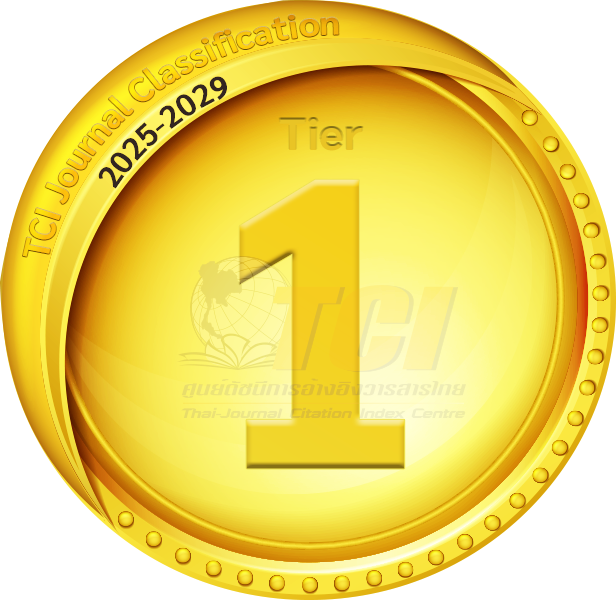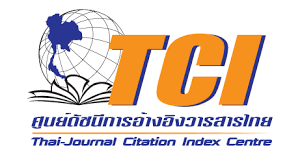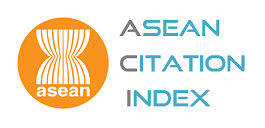Understanding Information Operations and Economic Impacts in the Digital Era
- Varin Pulpol, Faculty of Economics, Rangsit University, Pathum Thani, Thailand
- Tanpat Kraiwanit, Faculty of Economics, Rangsit University, Pathum Thani, Thailand, Corresponding author, e-mail: tanpat.k@rsu.ac.th
- Narong Petprasert, Faculty of Economics, Rangsit University, Pathum Thani, Thailand
Abstract
This research aimed to investigate whether demographic factors and the knowledge and understanding of information operations (IOs) affect the attitudes of Thai people towards economic impacts. Data were collected from 602 Thai Internet users, aged 18 years or over, via an online survey. Then, the data were analysed through ordered logistic regression to test the hypotheses. The dependent variables consist of three directions: positive attitude, uncertain attitude, and negative attitude. The set of independent variables includes gender, education level, occupation, average monthly income, average monthly savings and social media tools. The value of the knowledge and understanding of information operations is a covariate variable in this study. The analysis shows that the respondents’ education level is the only factor that has significance for their attitude towards economic impacts. The paper suggests that the knowledge and understanding of IOs can help society to recognize better the need to scrutinize news and whether news should be trusted. Meanwhile, education levels contribute to the understanding of IOs and predictions of economic impacts; therefore, the competent authorities should widely the information operations disseminate at all levels of education to create a better society, eliminate distorted news and contribute to economic growth.
Keywords: Knowledge and understanding of information operations, IOs, Attitude towards economic impacts, Ordered logistic regression, Digital era
DOI: 10.14456/rjsh.2021.3
References
Boonsri. T. (2013). Media Effect on Political Participation: The Case Study of Ratchadamnern Political Rallies (Master’s thesis), Communication, Arts, Strategic communications, Bangkok University, Thailand.
Chetty, R., Friedman, J. N., Hendren, N., Stepner, M. (2020). The Economic Impacts of COVID-19: Evidence from a New Public Database Built from Private Sector Data. NBER Working Paper No. 27431. US: National Bureau of Economic Research, Inc.
Command, J. F. (2012). Information operations joint publication 3-13. The Chairman of Joint Chiefs of Staff. Washington DC, US: Joint Publication.
Cooke, N. A. (2017). Posttruth, Truthiness, and Alternative Facts: Information Behavior and Critical Information Consumption for a New Age. The Library Quarterly, 87(3), 211–221.
Cordero, J., Muniz, M., & Polo, C. (2016). The Determinants of Cognitive and Non-Cognitive Educational Outcomes: Empirical Evidence in Spain Using a Bayesian Approach. Applied Economics, 48(35), 3355–3372.
Phalusuk, D. P. & Ponghanyut, S. (2002). Theory of Persuasion. Bangkok, Thailand: Ramkhamhaeng University Press.
Puengnetr, P. (2020). What is the IO 'and why does the state need this operation?. Bangkokbiznews. Retrieved from https://www.bangkokbiznews.com/news/detail/868029
Siam Commercial Bank. (2020). Thailand after Covid-19 Prepare to Get Through the Economist's Perspective Part 1: The Impact of the Economy and the Thai Labor Market. Retrieved from https://www.scb.co.th/en/personal-banking/stories/business-maker/thailand-after-covid-ep1.html
The World Bank. (2020). Major Impact from COVID-19 to Thailand’s Economy, Vulnerable Households, Firms: Report. Retrieved from https://www.worldbank.org/en/news/press-release/2020/06/30/major-impact-from-covid-19-to-thailands-economy-vulnerable-households-firms-report
Workpointtoday. (2019). Summarize the Cambridge Analytica case. Retrieved from https://workpointtoday.com/cambridge-analytica
Yue, M., Zhang, M., Zhang, C. & Jin, C. (2017). The Effectiveness of Concept Mapping on Development of Critical Thinking in Nursing Education: A Systematic Review and Meta-analysis. Nurse Education Today, 23, 87–94.
Zunick, P. V., Teeny J. D. & Fazio. R. H. (2017). Are Some Attitudes More Self-Defining Than Others? Assessing Self-Related Attitude Functions and Their Consequences. Personality and Social Psychology Bulletin, 43(8), 1136–1149.

Indexed in


Search